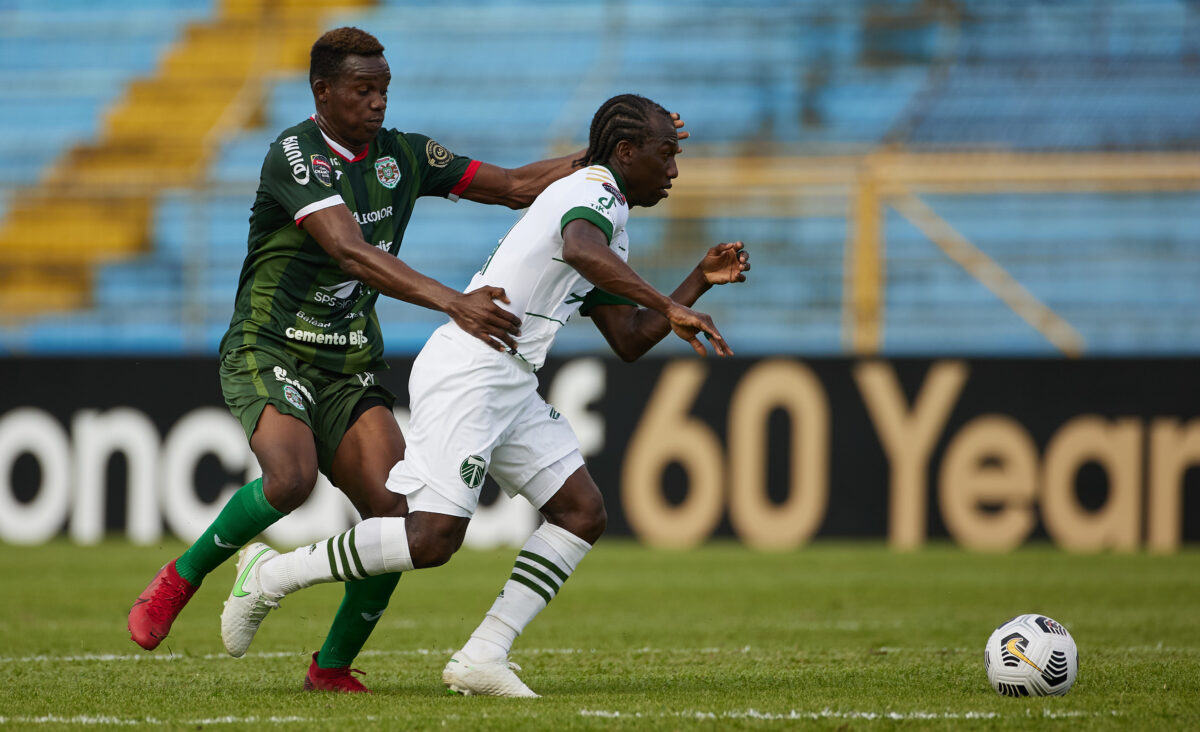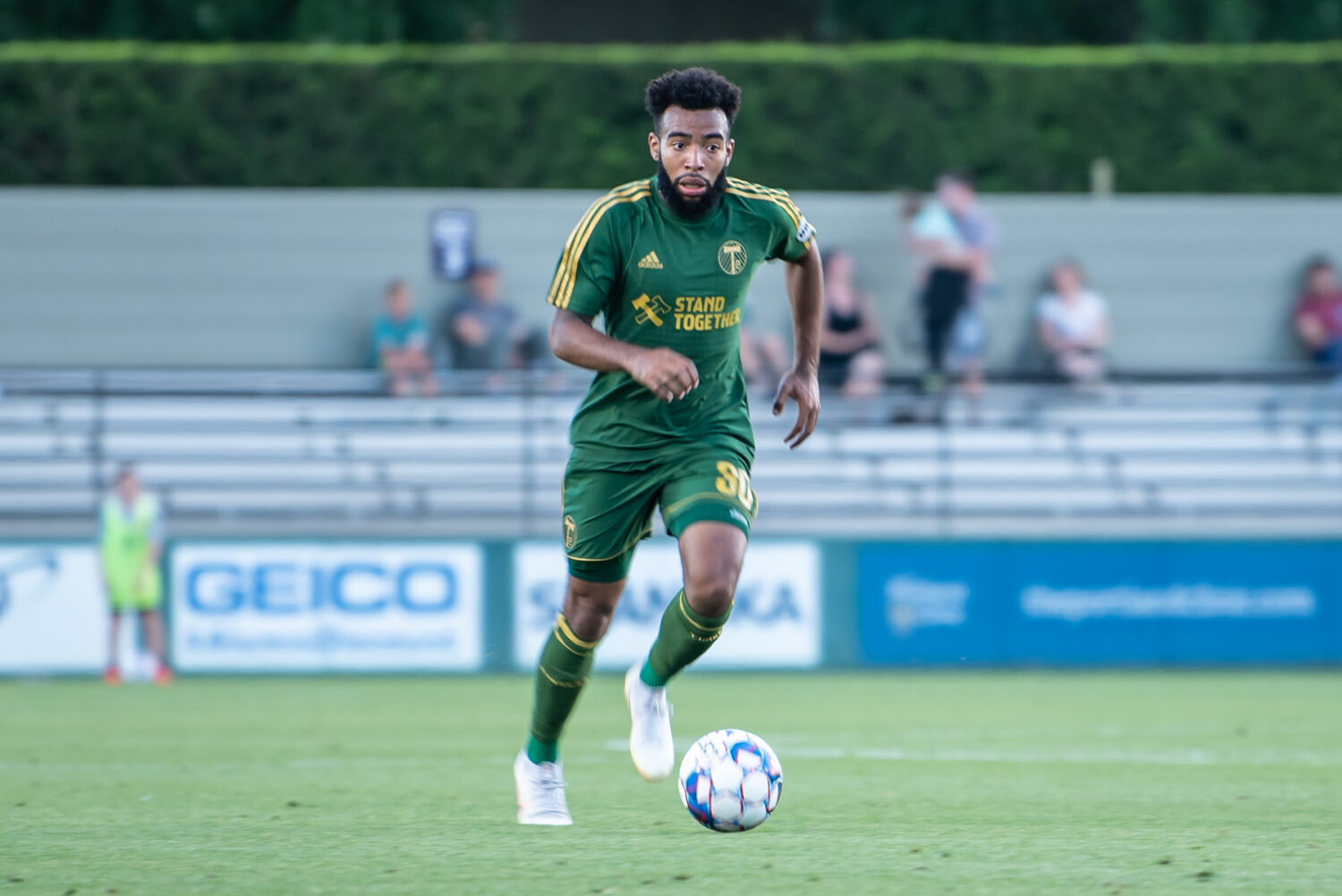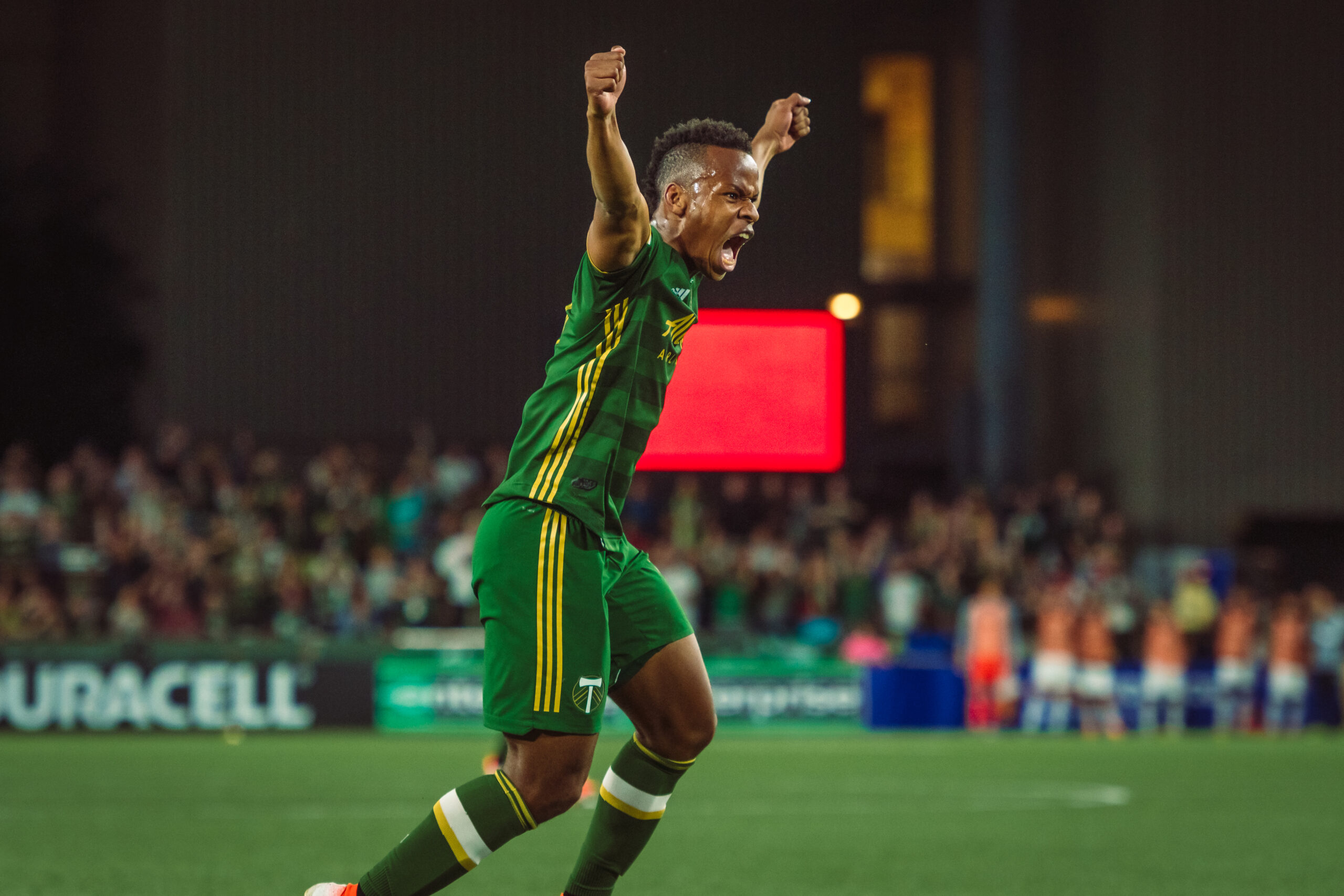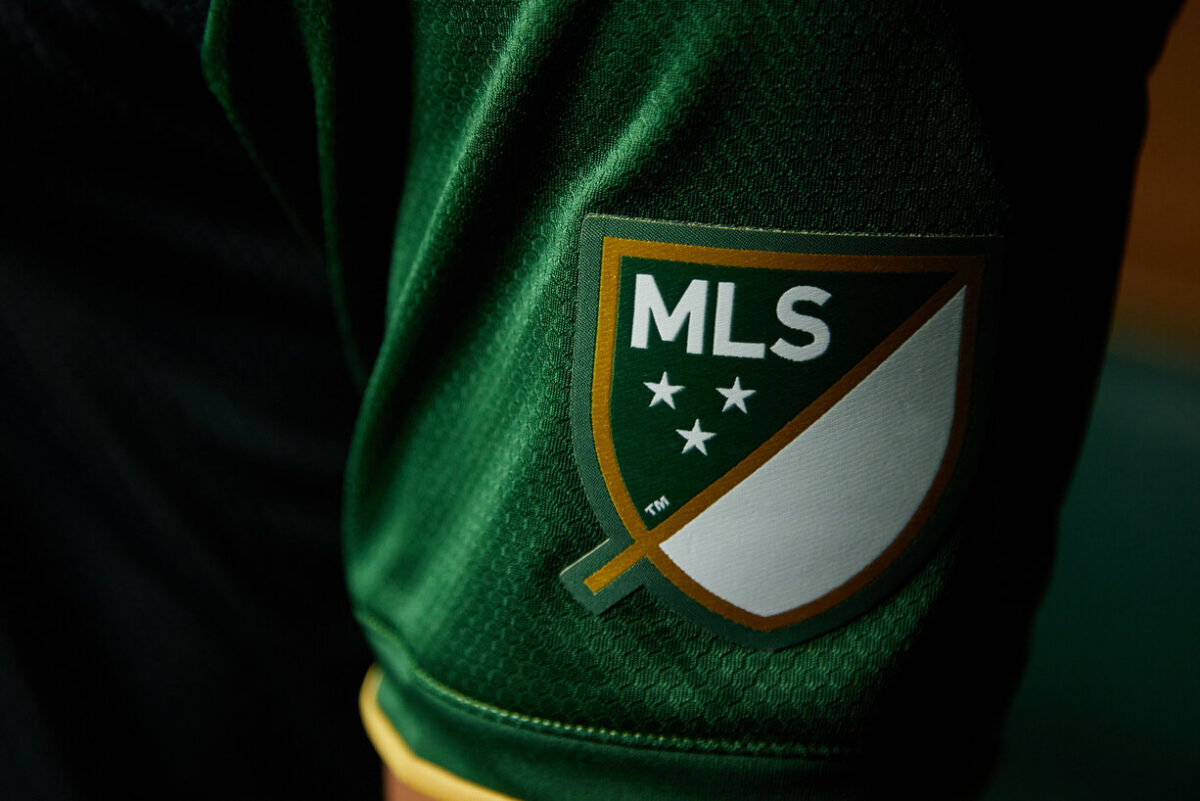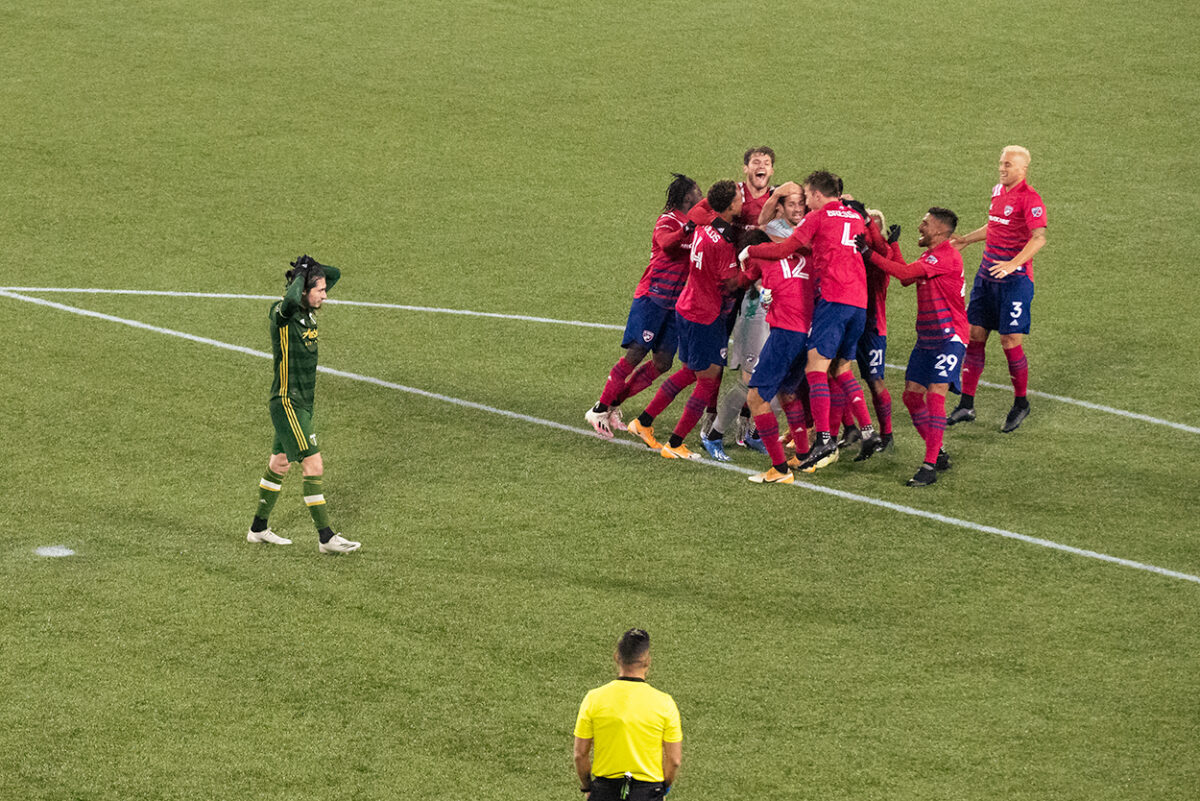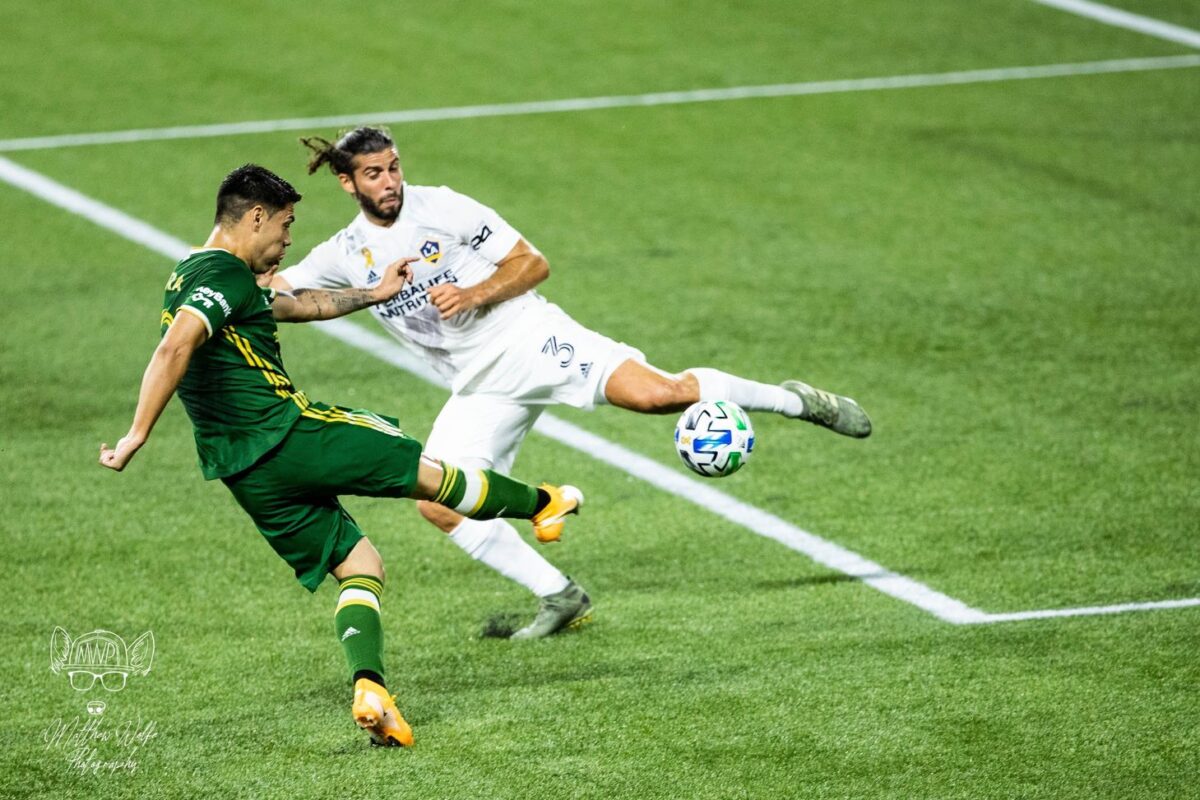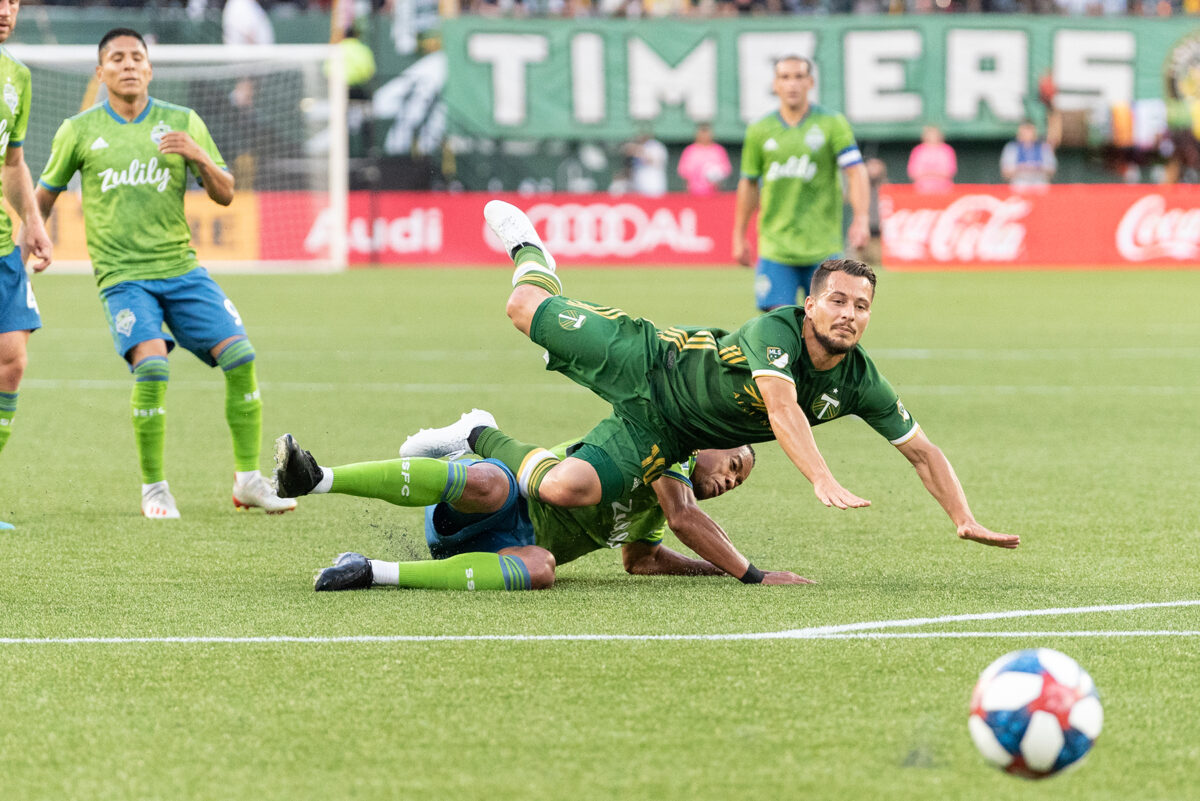It took a while for the Timbers to break through against the LA Galaxy Saturday afternoon, but once they did it became a field day at Providence Park.
After a frustrating, scoreless first half, Portland found the opening goal they so desperately craved in the 47th minute. Forward Felipe Mora, who subbed on after Andy Polo left the game in first-half stoppage time due to a hard, unnecessary tackle, read the space and got on the end of a well-placed cross from outside back Josecarlos Van Rankin. From there, the Timbers scored two more times and cruised to a 3–0 victory against Los Angeles.
“The commitment to perform what we work on during the week is what coaches always want,” coach Giovanni Savarese said. “It shows what this team is all about. A united group that will fight. It doesn’t matter who goes out on the field, everybody’s going to try and perform for each other and today was another very good performance.”
Los Angeles provided a tough test for a Timbers team looking to build on their 2–0 win at San Jose a week ago. Coach Greg Vanney’s team entered the match on a two-game winning streak and took 12 of their first 18 possible points. Talented players such as Chicharito, Jonathan Dos Santos, Efrain Alvarez, and Julian Araujo dotted the visitors’ starting 11. Despite the talent on paper, however, they struggled to find any sort of rhythm against the hosts.
While it took Portland a while to grow into the match, the team looked solid defensively and did enough to prevent the Galaxy from finding too many dangerous opportunities. Still, for as solid as the Timbers looked, they struggled to find a decisive goal or opportunity of their own throughout the first half.
A lot of those squandered chances stemmed from trying for the jugular. Multiple times throughout the first half, Portland pushed the ball into the attacking third in transition before settling for a half chance. A ball into the box turned into an attempted bicycle kick by forward Dairon Asprilla. In another transition moment, outside back Claudio Bravo found himself with time and space and tried to laser the shot in from deep. Those opportunities came dangerously close both times, but were both still low-percentage chances.
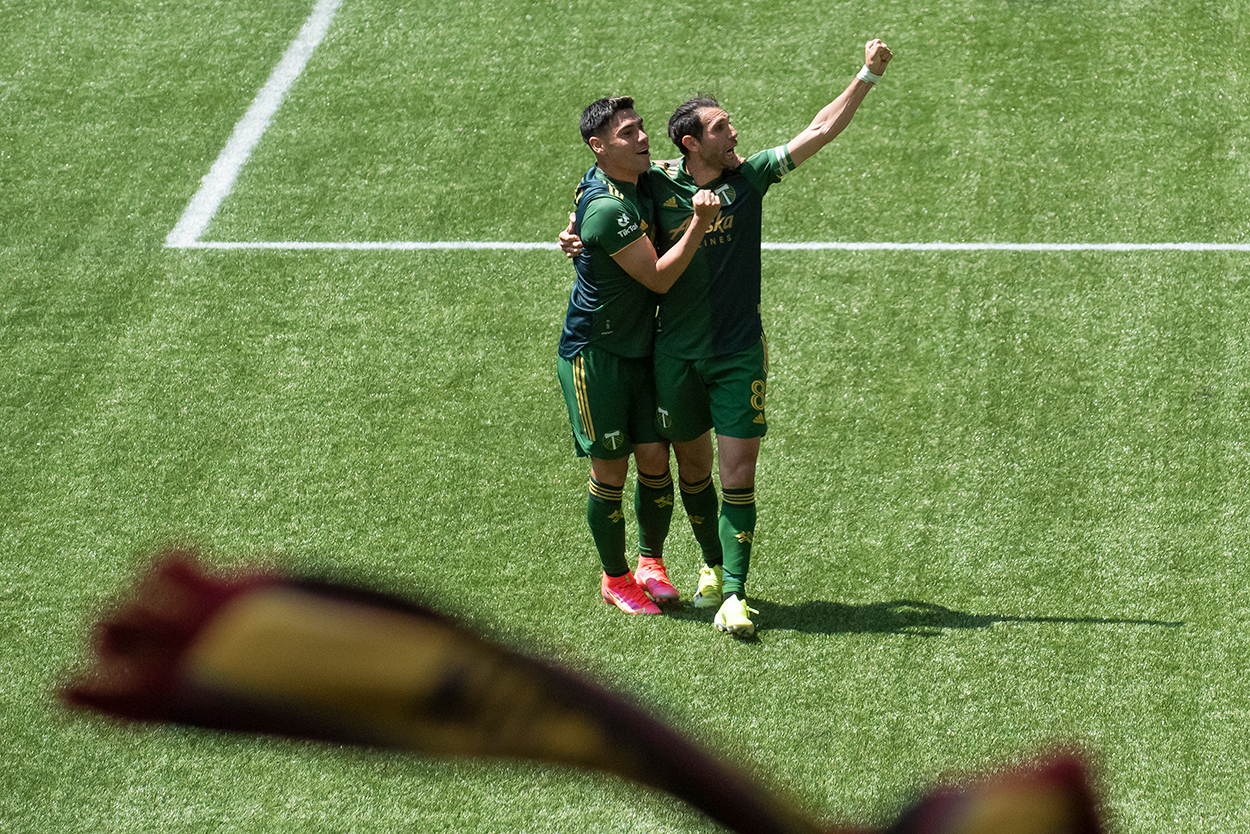
Near the end of the first half, the Timbers went a man up after Los Angeles forward Derrick Williams received a straight red for his brutal aerial challenge on Polo. The Peruvian watched the second half on crutches and Savarese’s immediate update did not sound good.
“When there’s a tackle like that, you don’t want to see that on the field,” Savarese said. “Especially having players that then have to come out because of that situation. Right now, the most important part is hopefully Polo can come back.”
The reckless challenge quelled the crowd at Providence Park for a few minutes, but Portland eventually made the most they could of the man advantage. Mora said that the game changed once the red card was issued. Spaces between the Galaxy’s center backs opened up, which the team relentlessly exploited in the second half.
“It was very hard to find spaces, but after the red card we spoke at halftime,” Mora said through a translator. “We knew that we needed to be calm, patient, and wait for the right opportunities. Thankfully after the first goal, the game opened up more for all of us and we were able to get two more goals.”
Mora took advantage of the newly found space with his header to open the second half, then 13 minutes later, netted a brace. Once again, the Chilean forward showcased his movement in the box, but this time by reading a second ball. In a moment of chaos, Van Rankin’s floated shot hit the top post, Mora reacted first, and he powered another opportunistic header past goalkeeper Jonathan Bond.
To cap off the high-scoring second half, the Timbers received an opportunity from the penalty spot after Los Angeles defender Daniel Steres brought Van Rankin down in the box. Midfielder Diego Valeri, who missed a pair of penalties in Portland’s 2–1 loss against Seattle, once again stepped to the spot. This time, he left little doubt as he confidently blasted the ball past Bond for the 3–0 lead.
“I needed to score that goal,” Valeri said. “After missing those two PKs against Seattle, it was important for me to score that third goal and keep lifting the team. Anyone can miss a PK, but for me it was important to put the ball in the net and keep looking forward.”
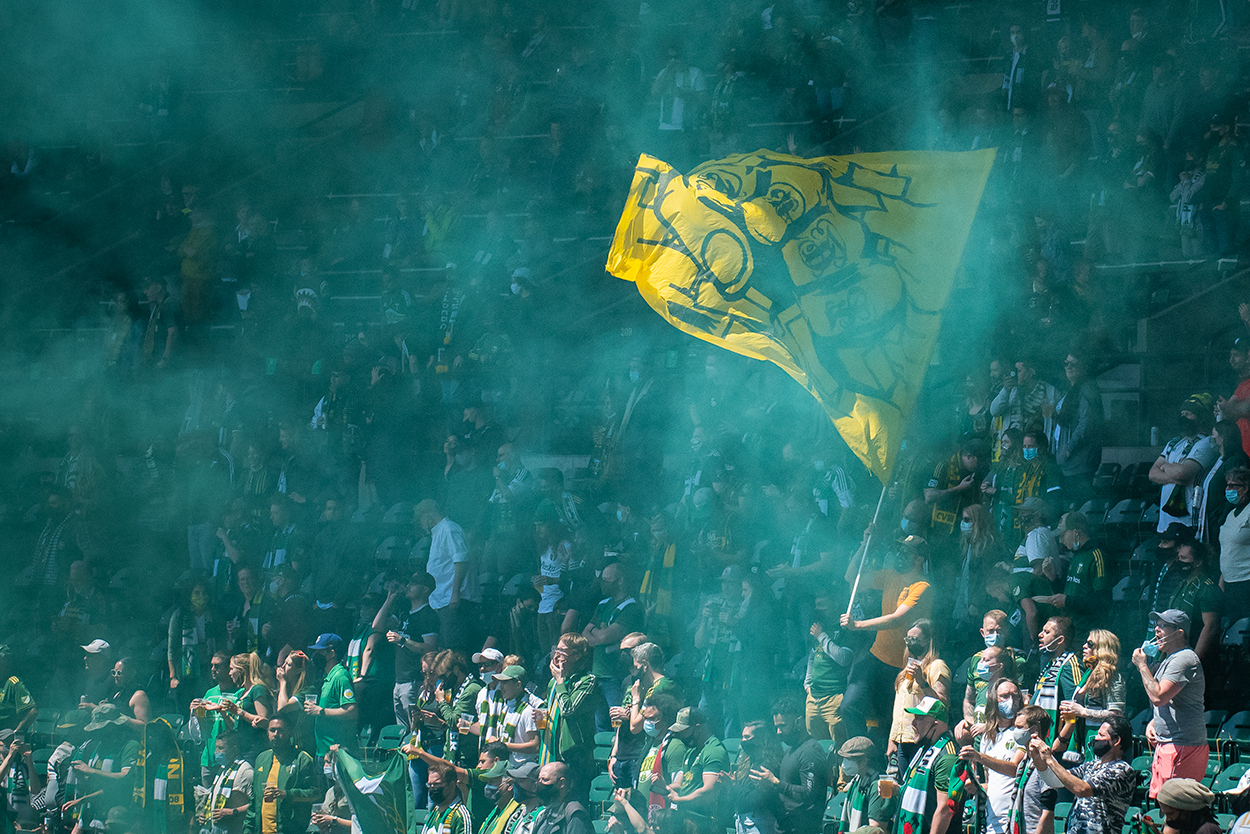
Just as sweet as the win, the Timbers put together their second-consecutive clean sheet against a team that entered Saturday with 10 goals. The center back tandem of Dario Zuparic and Bill Tuiloma came up big, while loanee goalkeeper Logan Keterrer put together another impressive performance.
“I think that has come because of the discipline of the group in the way that the guys have performed, in the way that the guys have executed the plan that we put together,” Savarese said. “We have players that are sacrificing for others in order to make sure that we cover every space, and that’s what we’ve seen in the last two games.”
With the three points, Portland wrapped up their home schedule before the three-week international break on a strong note. The Timbers now travel to Philadelphia high on confidence for one final match before the break, playing with house money and a roster getting healthier by the day.

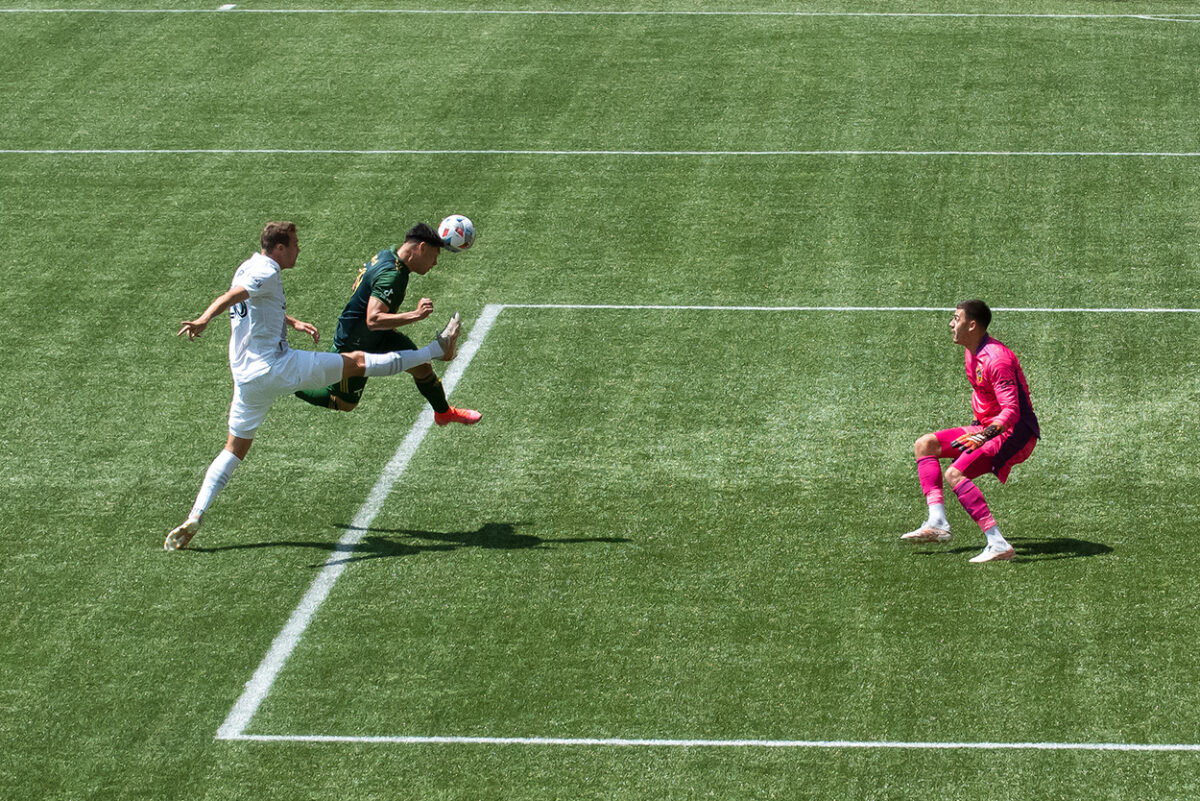
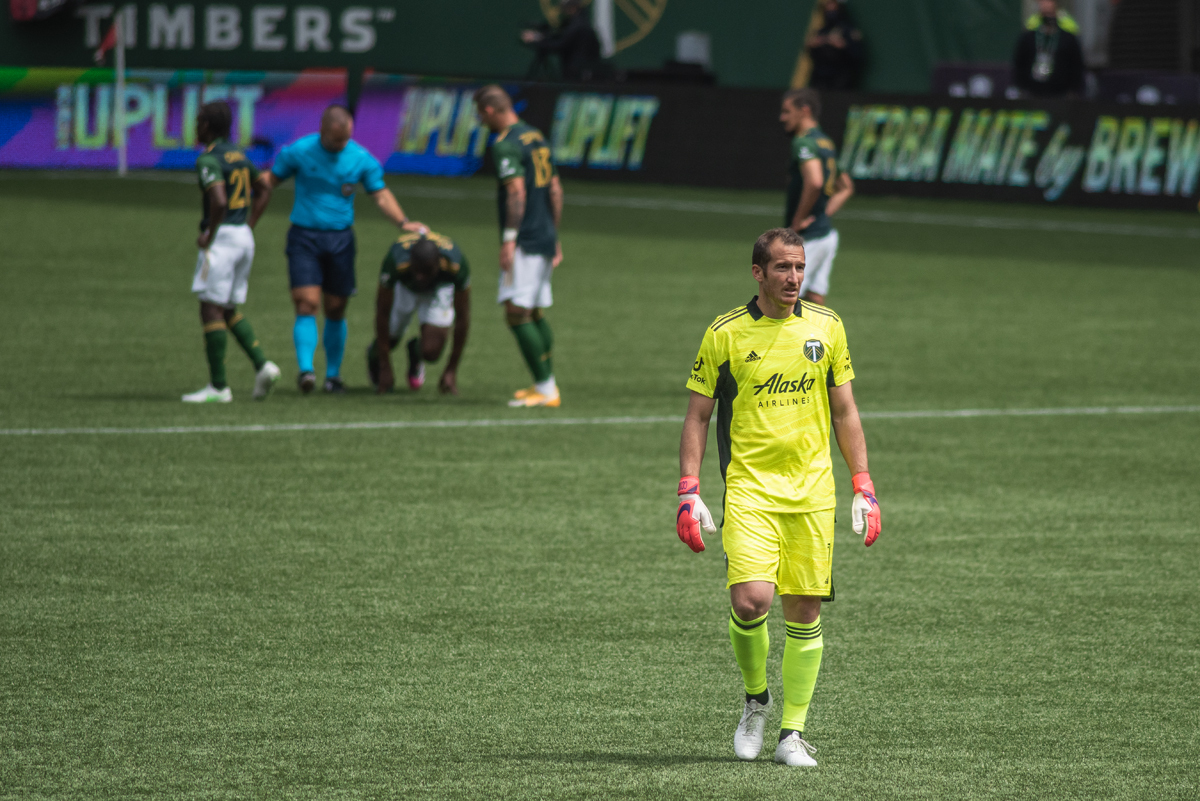
 Unlock with Patreon
Unlock with Patreon
